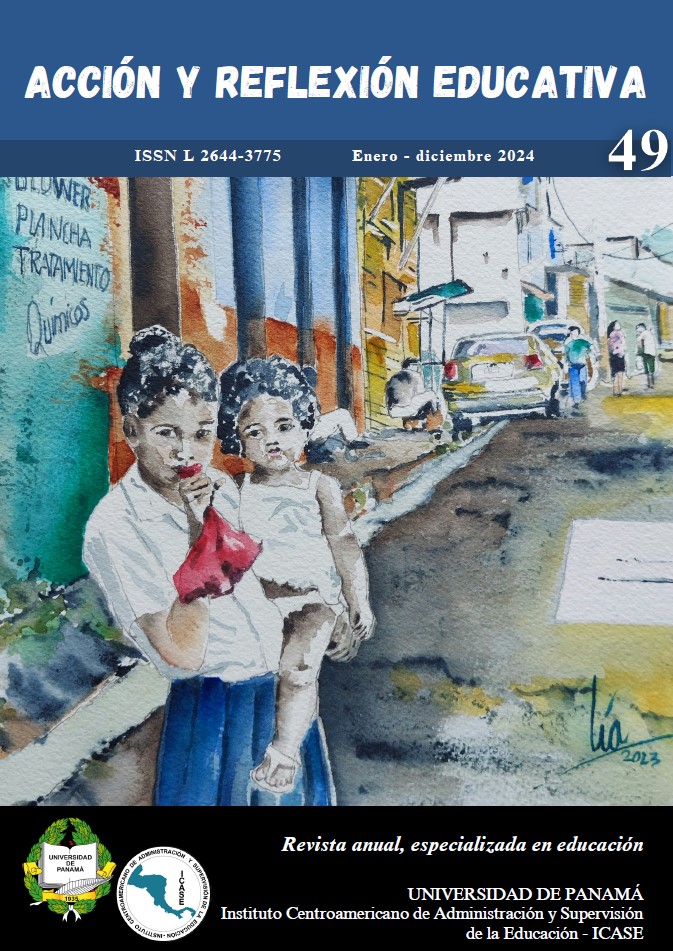

Copyright (c) 2024 Los autores

This work is licensed under a Creative Commons Attribution-NonCommercial-ShareAlike 4.0 International License.
There is a concern about the difficulty in learning Chemistry, traditionally explained by the nature of the discipline, and, currently, because a transposition of knowledge to sustainable development is required. In both senses, teacher training must respond to these challenges. This study aimed to design a training proposal for Panamanian chemical teachers, using water as a strategic axis. The methodology consisted, first, of identifying areas that required reinforcement by applying a pretest with multiple choice questions about water, its structure, interdisciplinary aspects, reactions and analytical determinations with environmental connotations. Based on the results, a course was designed with a reinforcement learning approach with reading guides, minimalist transparencies, modular teaching mini-videos, and contextualized research learning with collaborative activities, sampling for water quality evaluation, as well as practice of class design and peer evaluation. The design was demonstrated with a pilot of 10 teachers, evaluating the teachers' perception through a survey and interview. The weakness in chemical-analytical determinations for the evaluation of water quality was the most relevant. The teachers perceived that the reinforcement learning, and research method strengthened their technical, environmental and didactic competencies in a comprehensive manner.